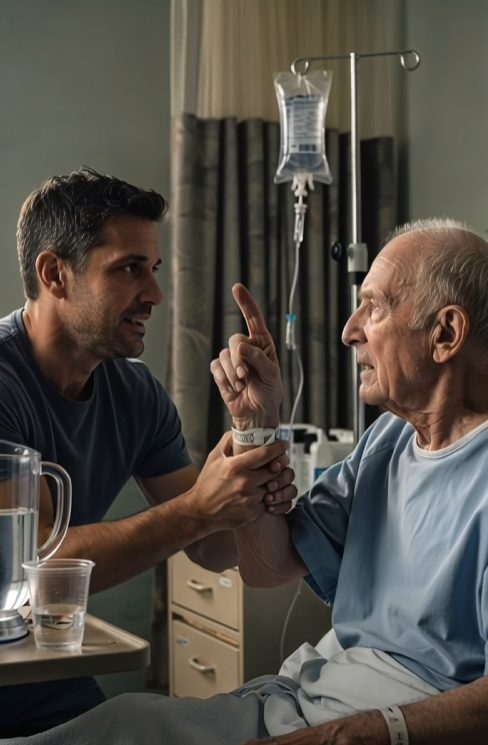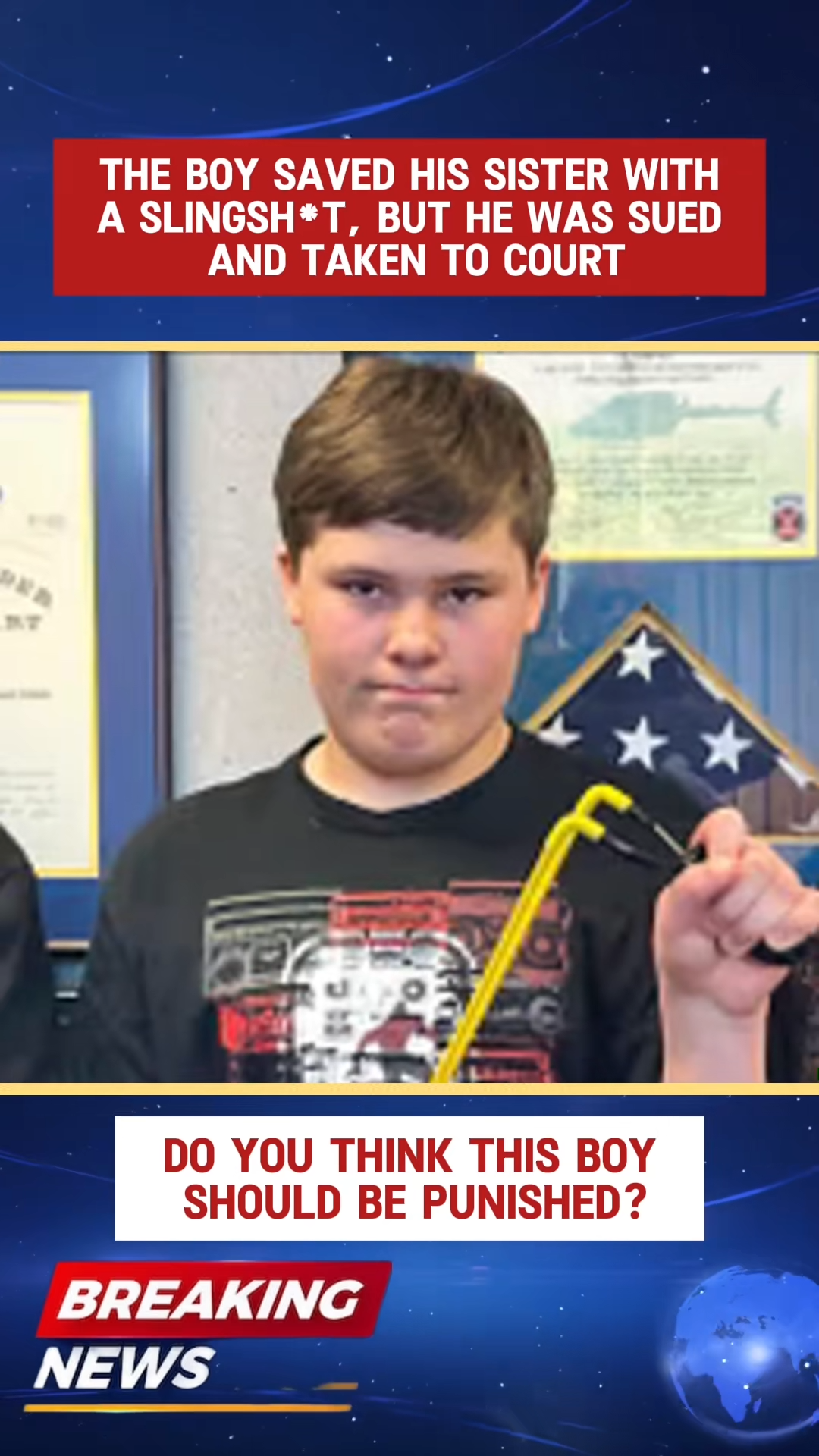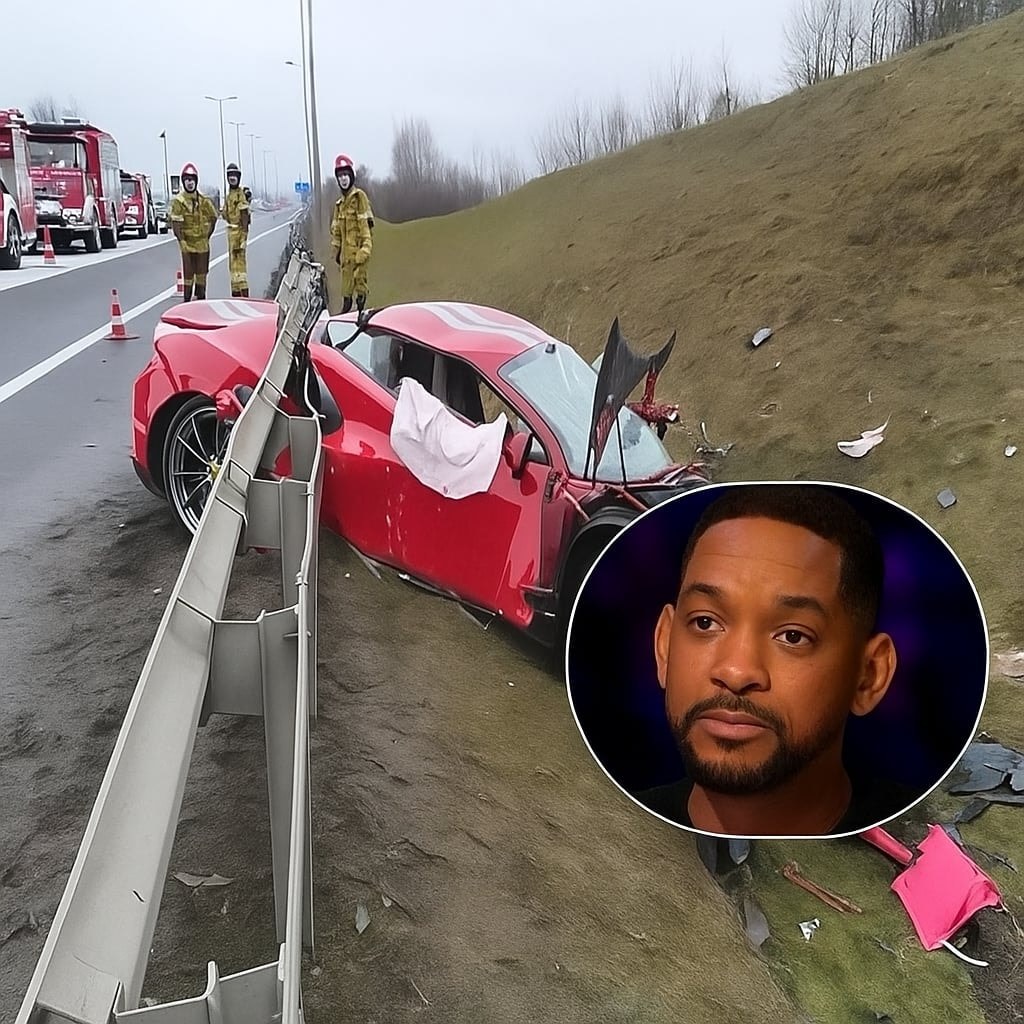“The gullible son keeps wiring money,” my stepbrother jeered on a secret recording, mocking my long-ignored father. When I returned after a decade away, I discovered Dad barely clinging to life while my stepfamily enjoyed a lavish lifestyle funded by my remittances. I froze their access to the accounts and arranged for the house to be sold. They called me cruel — unaware that my father had left one last direction: “the safe… your birthday… the agreement…” What I found inside finished them.
Ten years overseas. Ten years of dutiful payments so my father could receive top care. I came home unannounced, excited to surprise him and see his face light up. Instead, when I pushed open the family house door, a wave of decaying garbage hit me like a slap — overflowing trash, buzzing flies, and expired pills scattered on the floor.
“Dad?” I shouted into the heavy quiet.
The neighbor I grew up with watched from her window. “They took your father by ambulance a week ago,” she told me, worry carved into her face. “No one returned.”
I located him in a county hospital — wasted, frightened, covered in pressure wounds from neglect. The nurse regarded me with pity and disgust. “You’re his son? We’ve been calling for someone for days.”
My hands shook as I searched my phone. After nearly thirty frantic minutes combing social media and relatives’ profiles, I found my stepmother’s account: beach photos from Dubai, cocktails, shopping hauls. Then a photo froze me — my stepbrother grinning, wearing the gold watch I’d bought Dad for his last birthday.
I rang her, fury making my fingers clumsy. “Darling, what a surprise!” she sang, bar noise behind her. “Your father’s fine! We left him at a luxury spa.”
“I’m with him at the county hospital,” I said, voice flat. “Put down your drink. We need to talk.” I hung up. The fight had begun.
I refused to leave Dad in that place another day. I brought him home that afternoon, but I knew professional care was essential. The nurse who’d told me the truth slipped me her card. “Ana Morales,” she said quietly. “I do private caregiving. Call me if you want someone your father can trust. What they did to him is unforgivable.” I hired her immediately.
While gathering his things, Ana hit me with the information I needed. “Nobody visited all week. Your stepmother stopped answering the hospital’s calls. I heard them ring six times the first day.” Flames in my chest cooled into precise resolve.
Back at the house I changed every lock. My lawyer — someone I’d contacted before I left the country — warned over the phone: “Legally, until eviction proceedings are complete you must allow them access. It’s the marital home.” I provided a new key, but I already had a plan. The next morning I called the bank overseeing the medical trust I’d set up. “I’m the account owner,” I told them. “Send me statements for the past six months.” The records showed lavish spending at five-star hotels, upscale restaurants, and designer boutiques — all while my father lay neglected.
A few days later they returned, bronzed and perfectly coiffed, the picture of entitlement. Their smugness evaporated when they found me caring for Dad in the living room.
“What are you doing here?” my stepmother demanded.
“This is my home. It’s Dad’s house too — legally,” I said calmly. “Welcome back.”
My older stepbrother — the one wearing the stolen watch — sneered. “You should’ve told us you were coming.”
“Like you should’ve told me you were on vacation while Dad was dying alone?” The silence afterward was exquisite.
I let them settle into a manufactured torment. They did not know that each cruel remark, every act of neglect I observed, was building my case. Ana became my ally. A week after they moved back, she showed me a battered notebook.
“I’ve been keeping records,” she said. Dates, times, missed medications, moments when he was left filthy — page after page of meticulous notes. She then produced recordings she’d captured when they assumed privacy.
I pressed play. My stepmother’s voice filled the room: “The old man’s getting worse. When he dies we can stop pretending.” Then my stepbrother: “We’ve raked in everything we could. The fool son keeps sending money like clockwork.”
Ana looked at me with quiet fury. “Your father deserves better.”
I took the evidence to my lawyer. He sharpened his gaze. “This destroys them,” he said. “Criminal neglect, embezzlement, abuse of a dependent.” He closed the folder. “What do you want done?”
“I want them stripped of everything — lawfully,” I replied.
“It’s possible, but we need proof tied to the marital assets,” he said.
That night my father had a flicker of clarity. He gripped my arm. “The safe,” he whispered. “Your birthday. The agreement.”
In his closet I found an old safe. The combination was my birthdate. Inside: house deeds, a few of my mother’s jewels, and an envelope labeled “Important — Marriage.” The prenuptial agreement inside spanned twenty pages. On page fourteen, clause 7.3 waited: proven neglect of an ailing spouse results in forfeiture of all spousal rights, alimony, and any financial benefits from the marriage.
My father had planned ahead. Even with early dementia, he had protected himself. My stepmother had never imagined what she’d signed years before.
What followed was a performance. I allowed them to be their true selves — petty, cruel, and careless — while Ana and I recorded everything. One night my stepmother spat, “Why don’t you get lost? Go back to your failed life abroad.”
“I’m staying until this is done,” I answered, recording every insult.
“You’re pathetic, like him,” she said, sneering at Dad. “When he dies, we won’t have to pretend anymore.”
My stepbrother chuckled. “Ten years of sending cash for nothing. Maybe you should’ve gotten an education.” Every barb fed my case.
Monday morning brought the first strike. My lawyer called my stepmother. I was in the kitchen feeding Dad oatmeal when I heard her scream into the phone, “Frozen? That money was for my husband!” She spun into hysteria. “This investigation into improper expenses is absurd! I’m his wife!” Then she looked at me with pure fury. “It was you, you—”
“I don’t know what you mean,” I said, calmly spooning another bite for Dad.
Her color drained. Finally she grasped she’d never controlled the funds.
That night the stepbrothers surged into the kitchen like predators. “Give us back access, you parasite,” the older one snarled, blocking me.




